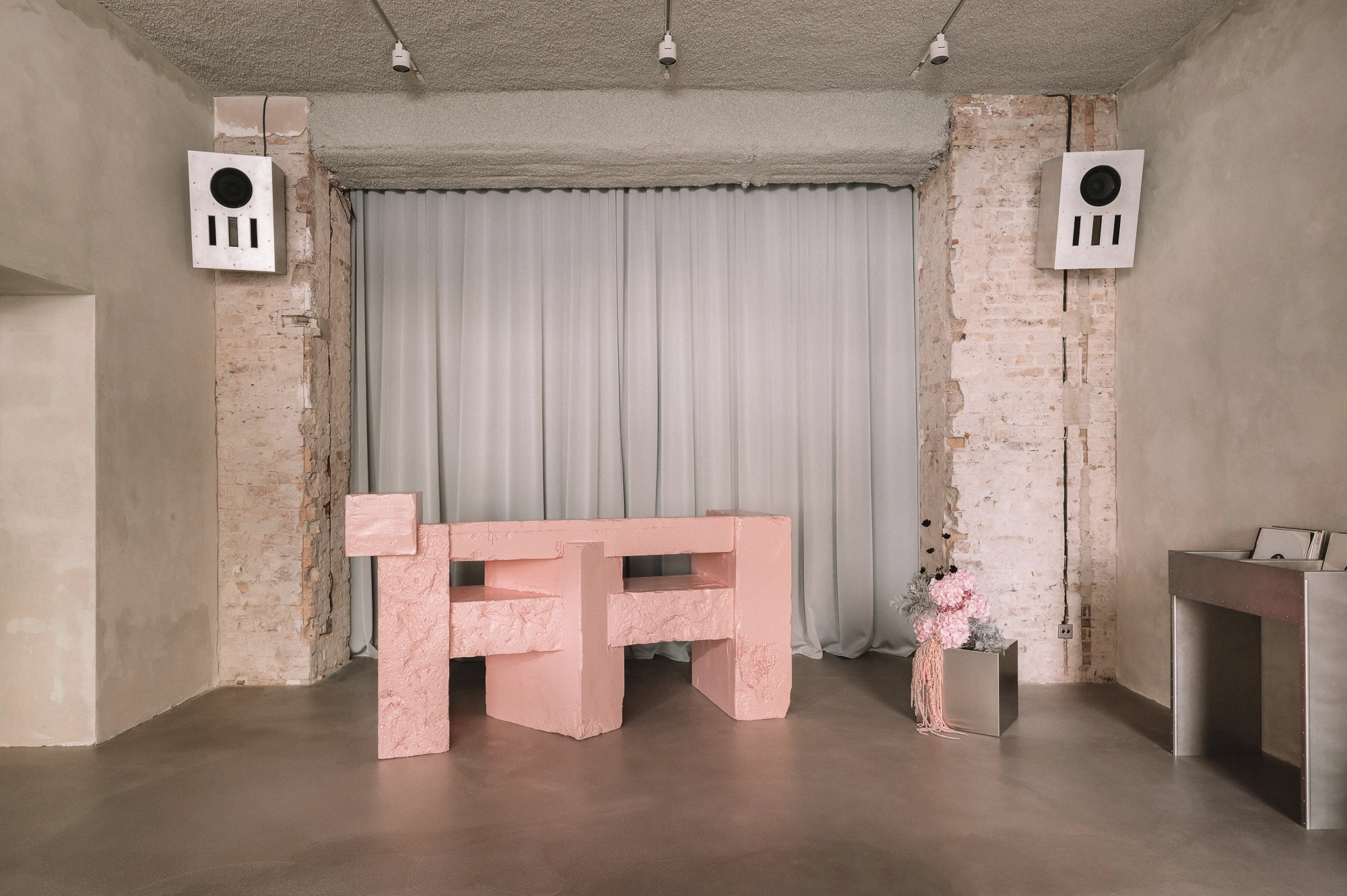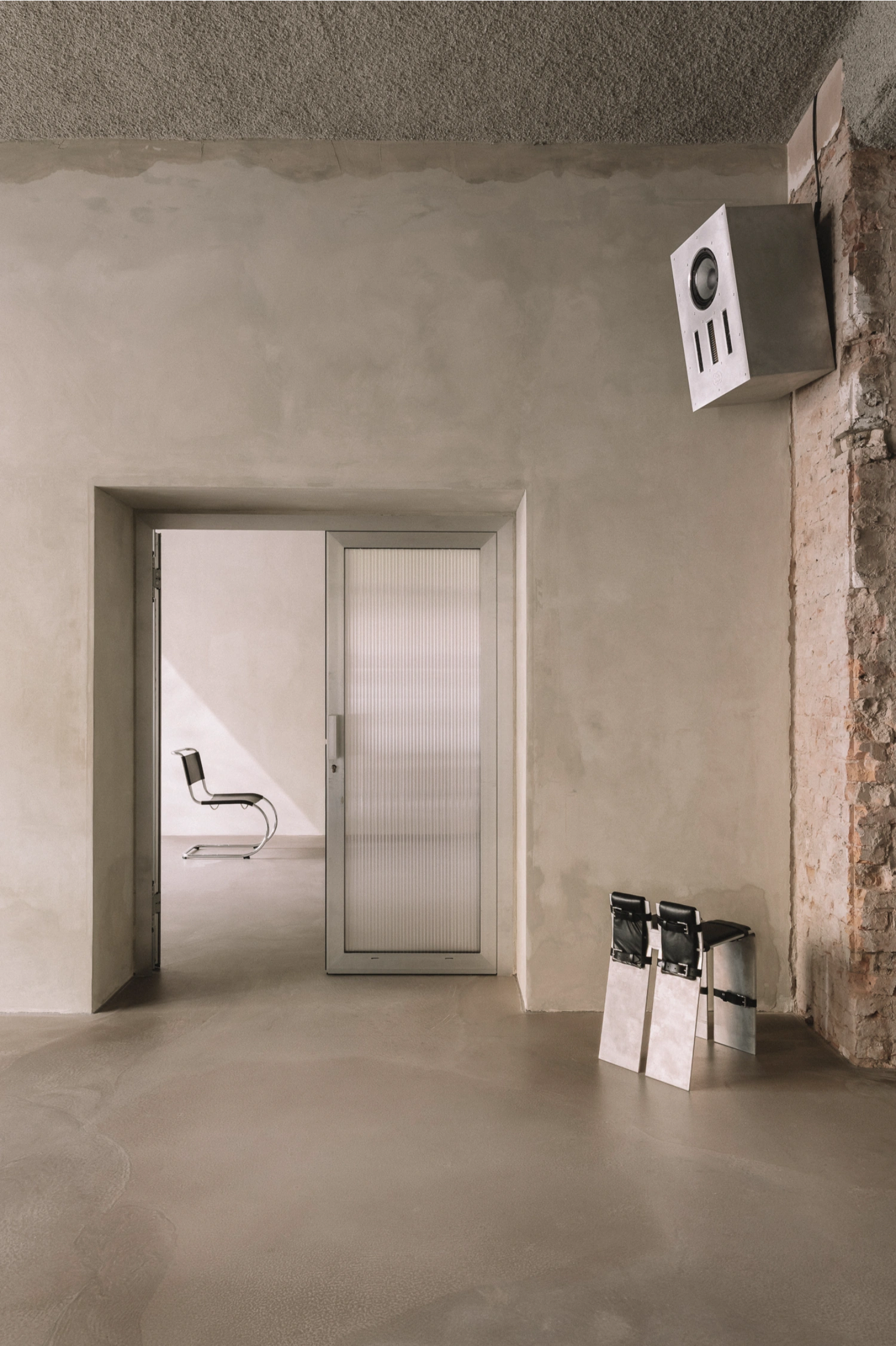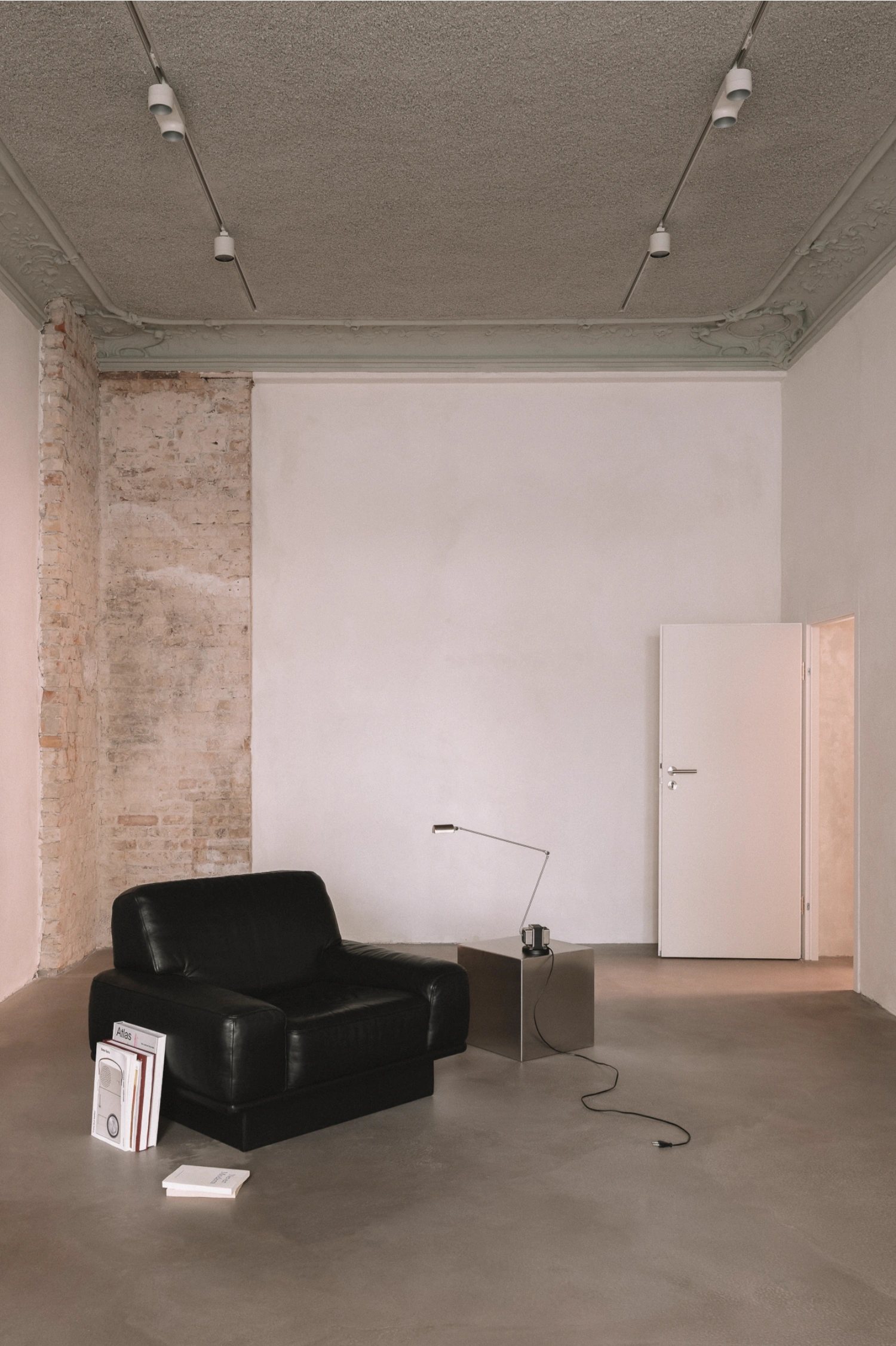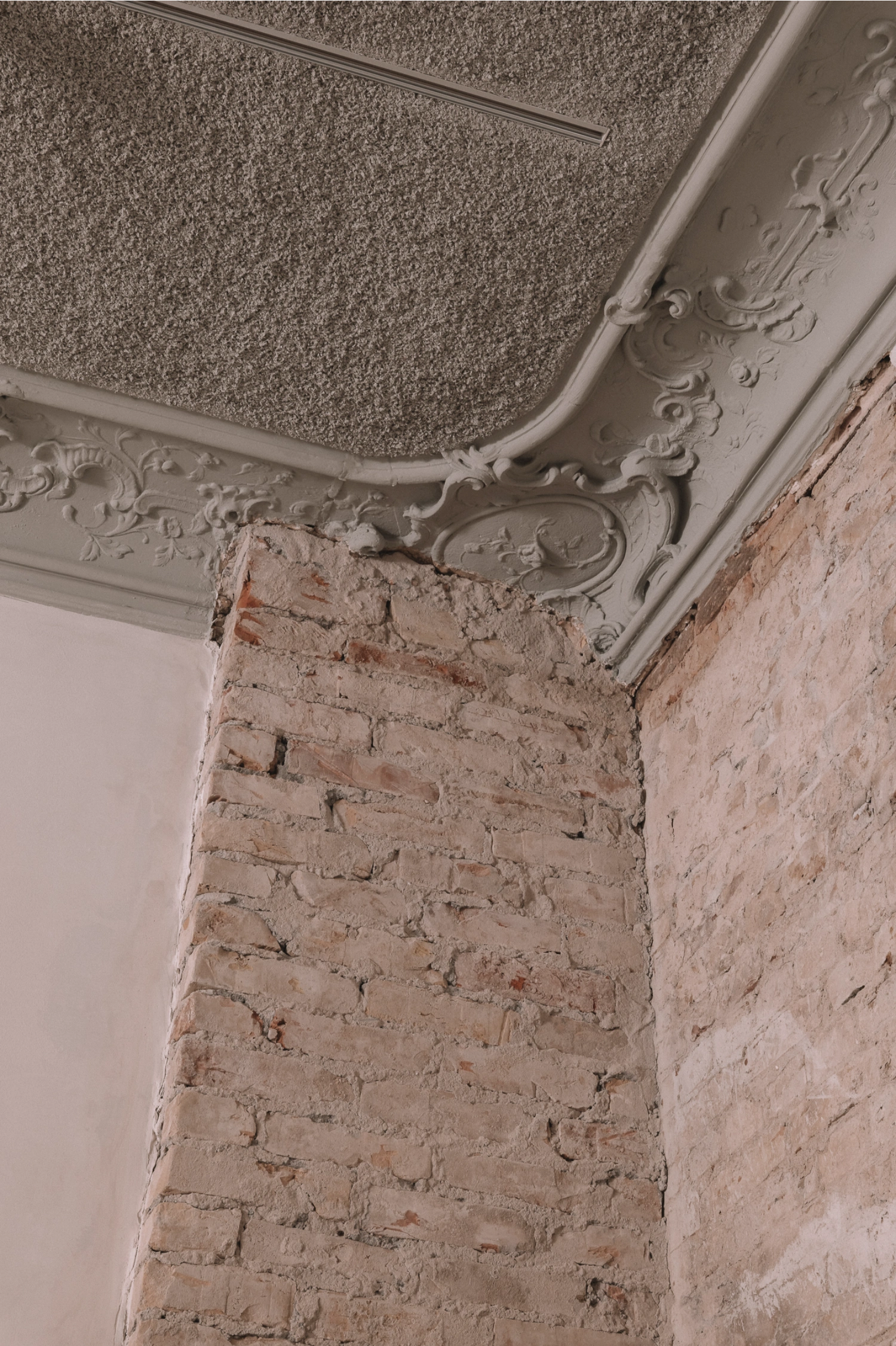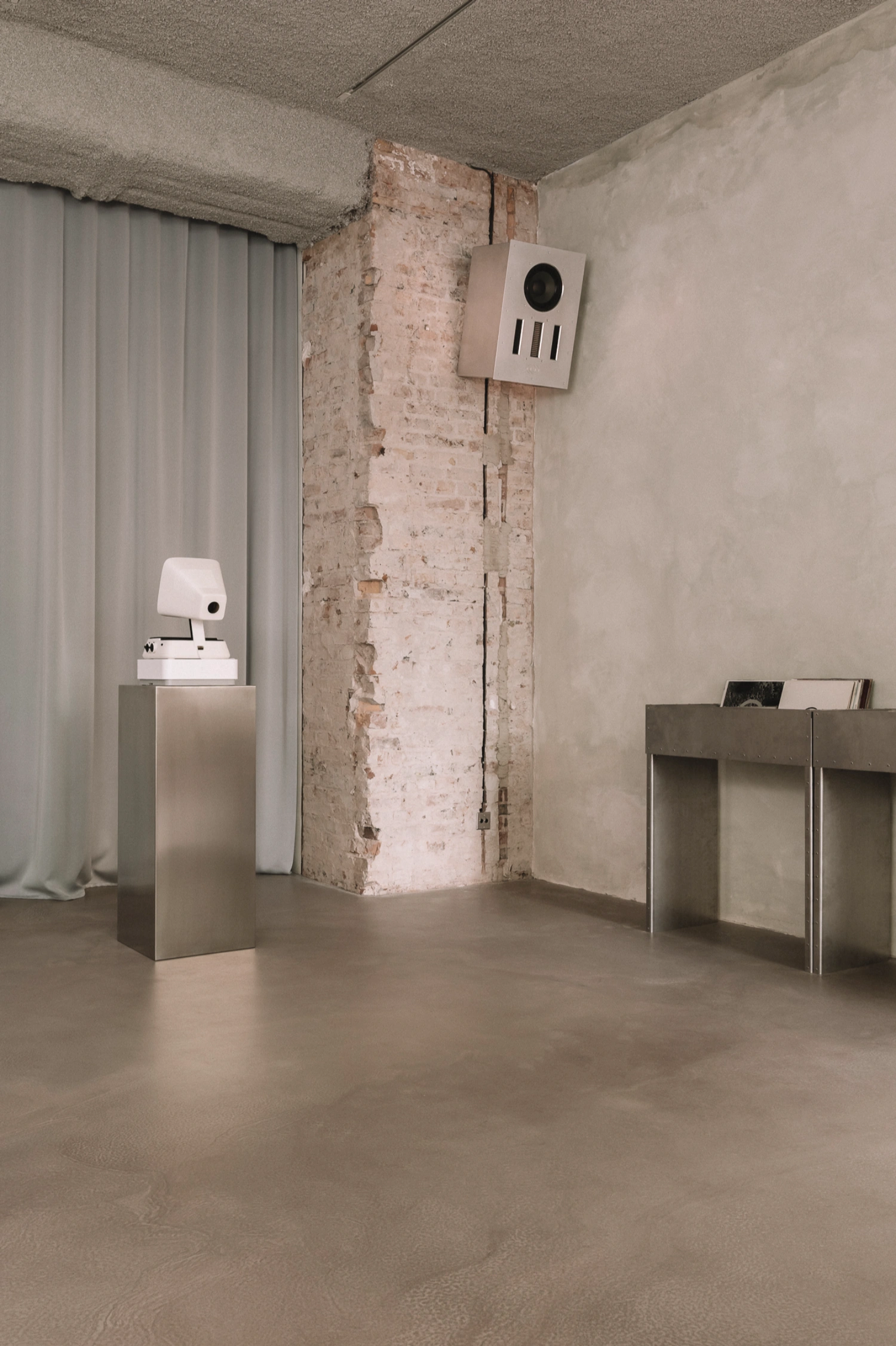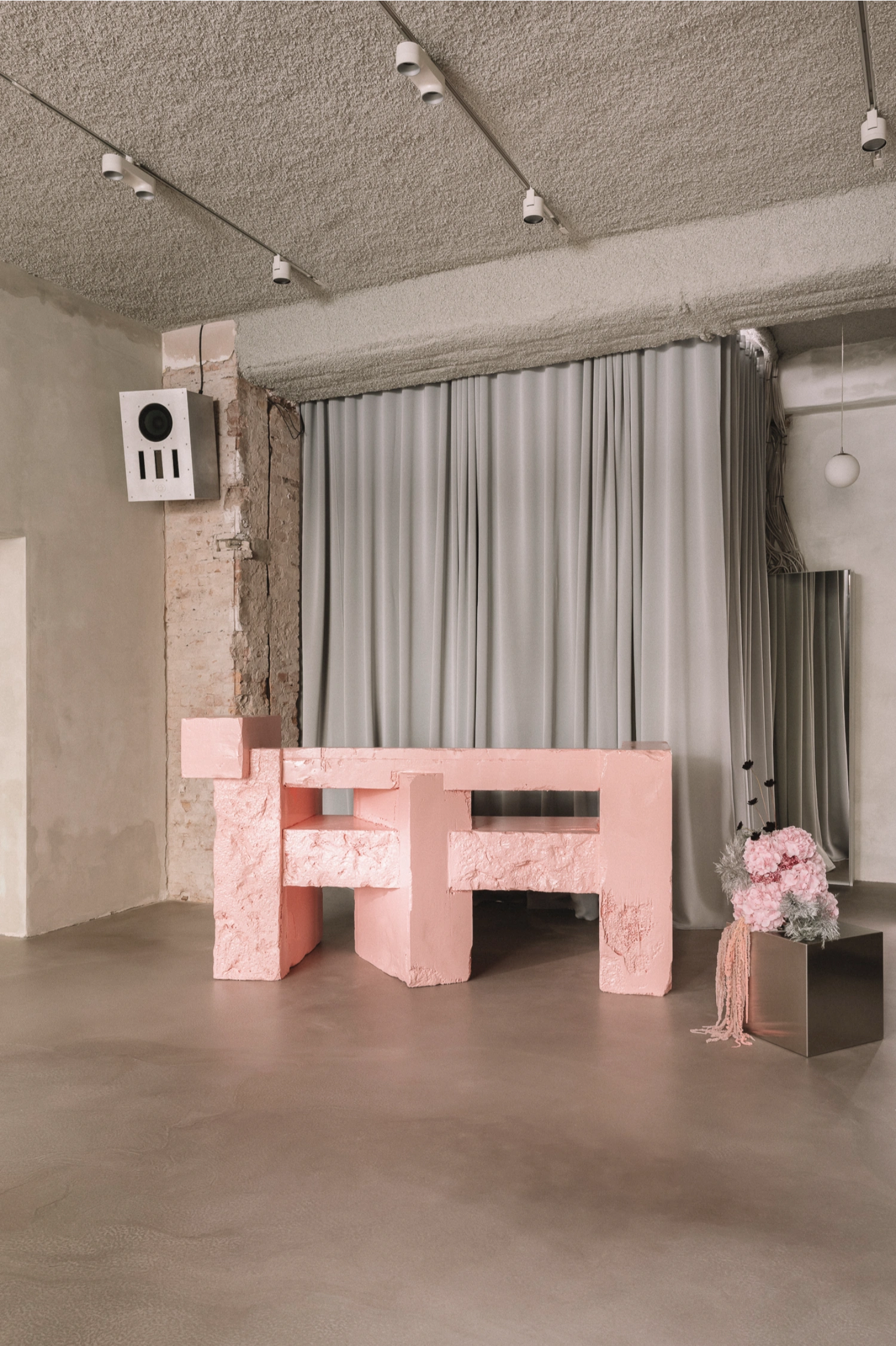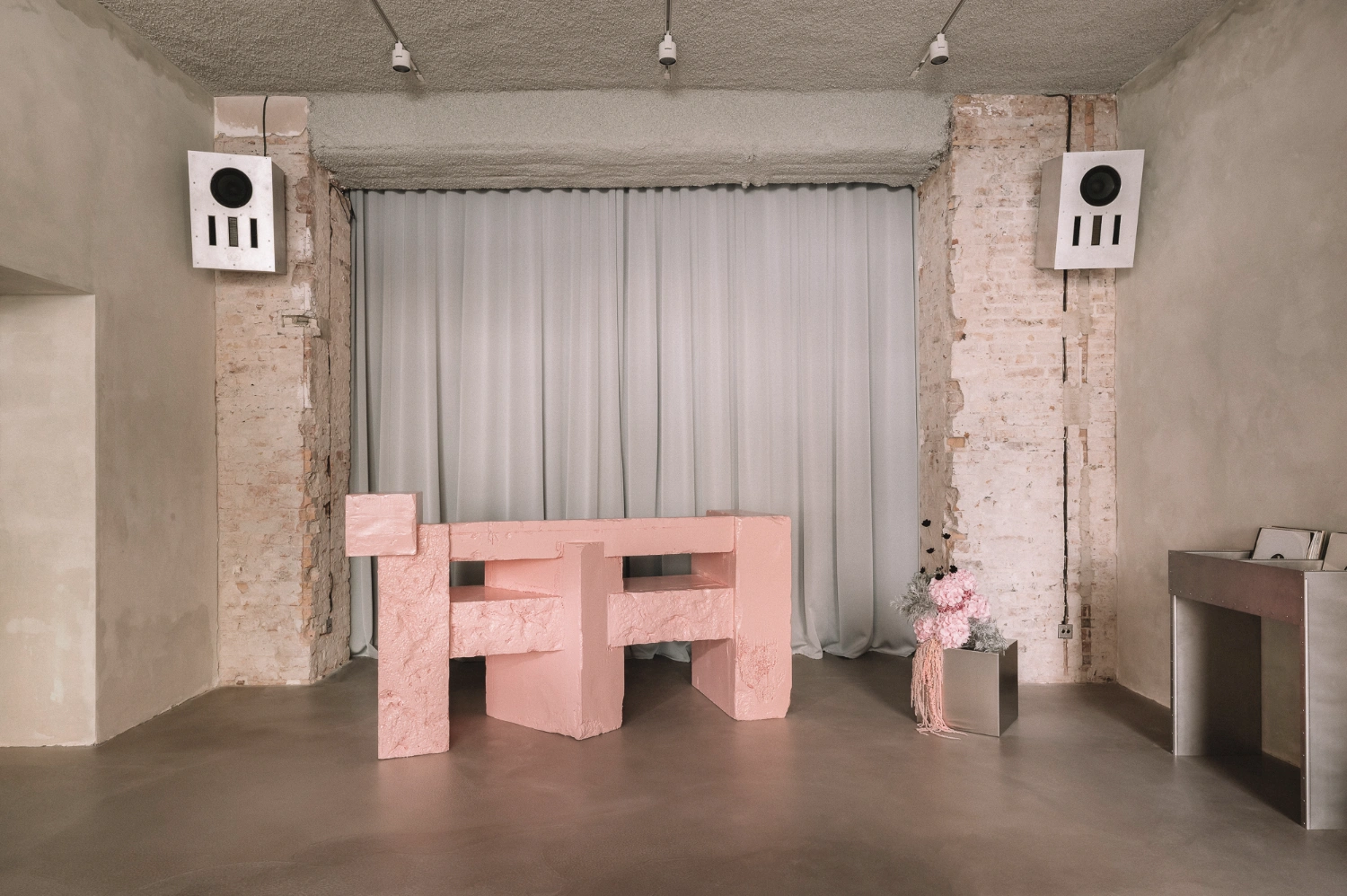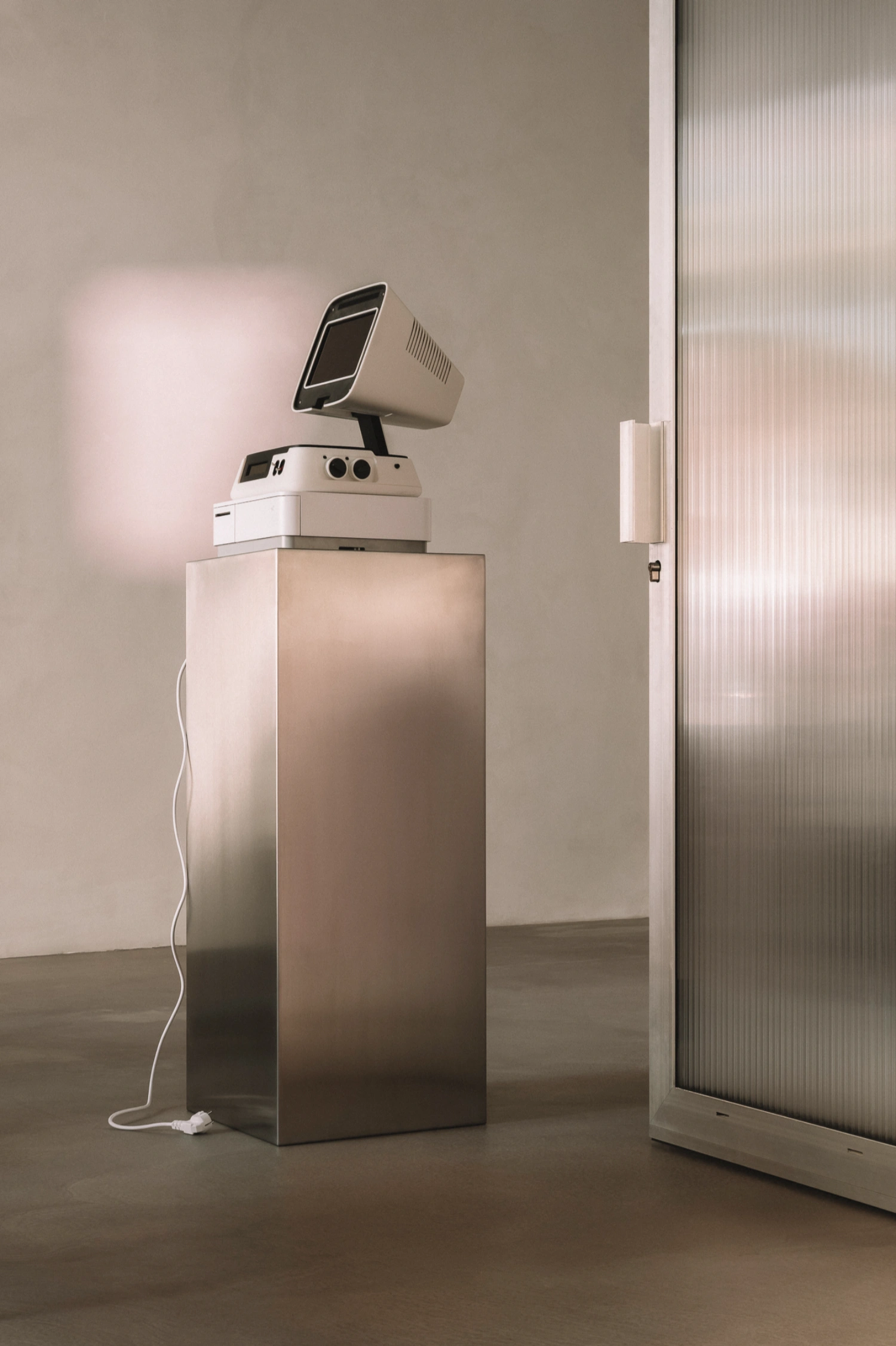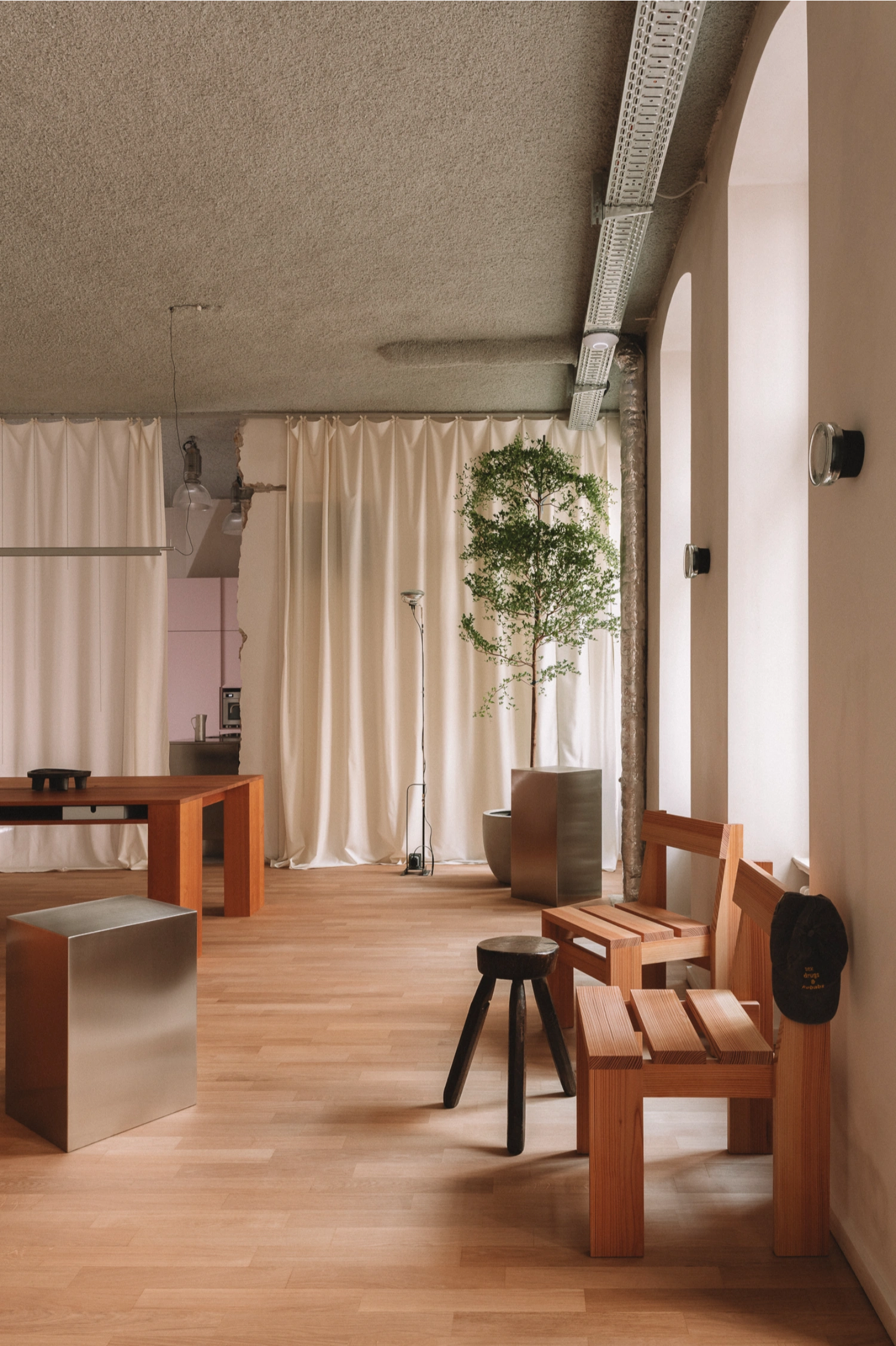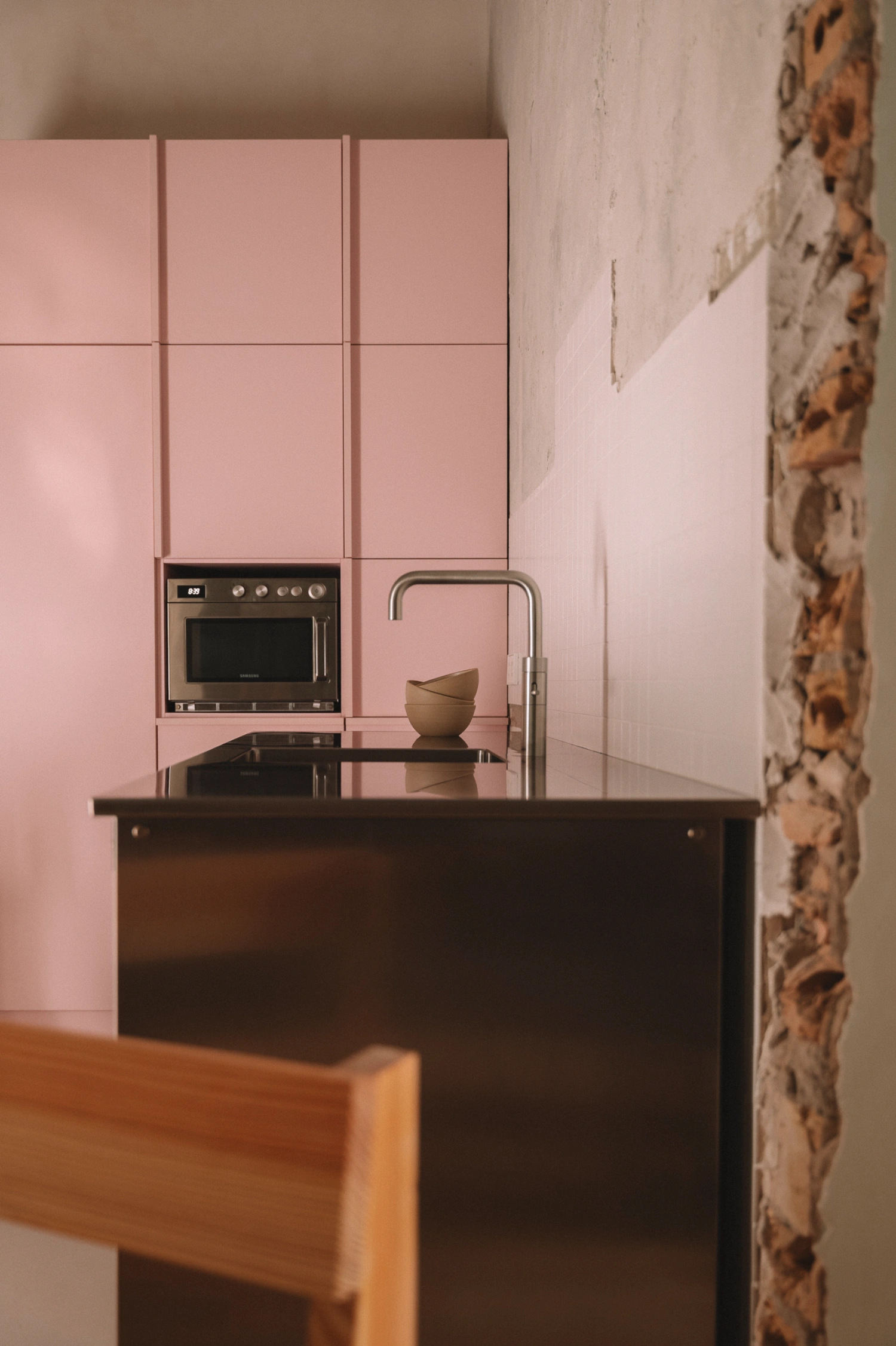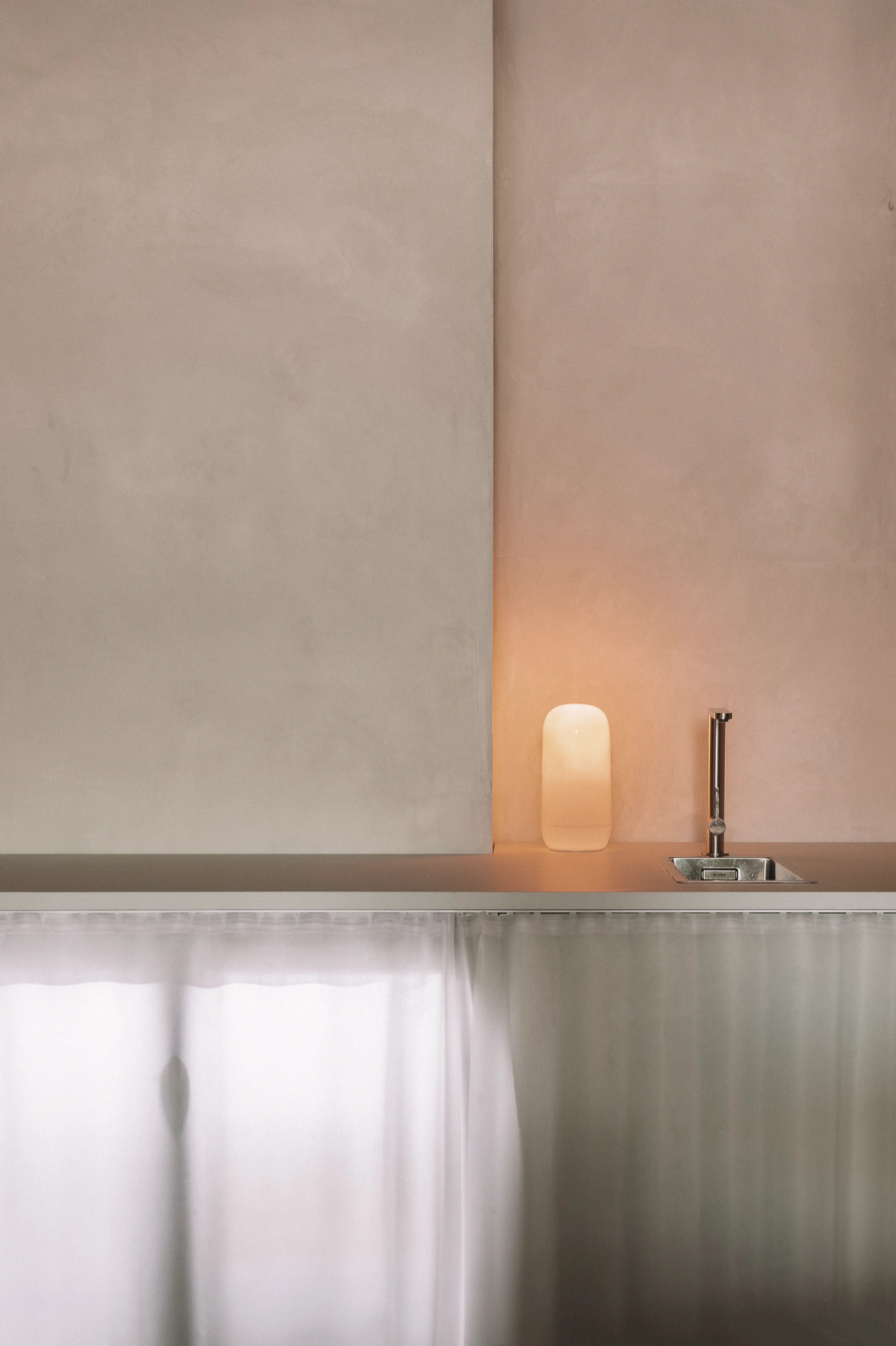YONT’s first built project transforms a Berlin Altbau for house label Seven, balancing raw history with sculptural precision to create a compact, atmospheric hybrid for listening, working and gathering.
Housed in a timeworn Altbau, the design neither romanticizes the past nor overwrites it. Instead, YONT allows the building’s own scars — torn plaster, exposed brick, ornamental ceiling flourishes — to hold the weight of presence. History becomes material, not metaphor.
This is not a white cube gallery nor a maximalist shrine to subculture. The renovation moves with restraint, offering a series of well-tempered interventions: cool, honed concrete floors, brushed steel volumes, custom furnishings that verge on the sculptural. A monolithic pink counter — foam-like in its texture — becomes both anchor and anomaly, disrupting the tonal discipline with unexpected softness. It’s not playful, exactly, but it pulses with an undercurrent of camp that feels precisely situated.
Spatially, the store functions as a hybrid organism. It glides between roles: workspace, record repository, listening station, impromptu studio. A steel plinth topped with vintage tech emits a quiet glow; chairs lean in deliberate formation against a wall, echoing themes of repetition and rhythm. Each element — from modular seating to industrial curtains — feels choreographed, contributing to an ambient choreography that mirrors the looping structures of house music itself.
What YONT achieves at SEVEN is not just architectural: it’s a spatial remix. By revealing the building's anatomy and inserting pieces that feel both provisional and exacting, the studio captures a new kind of softness within Berlin’s industrial lexicon. It's an approach that resists the pristine and embraces complexity — not to impress, but to evoke. There’s a reverence here, not for style, but for atmosphere.

